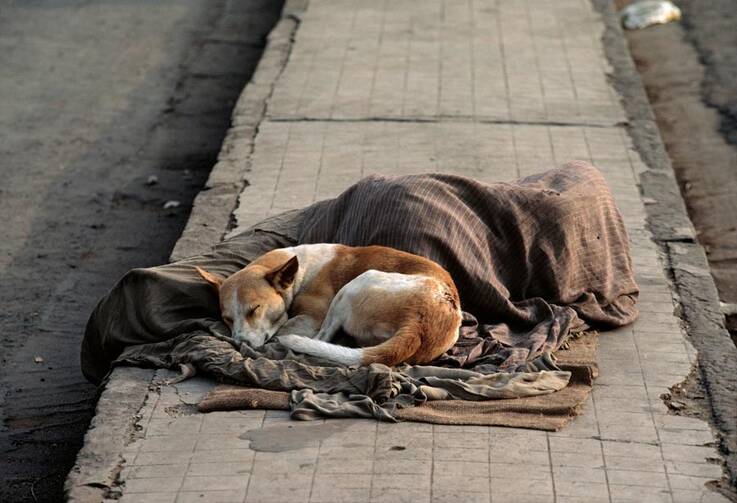Cambridge, MA. Last week I shared with you the problem the preacher faces when a particular reading begs for political application and commentary, in an era when many of us detest preachers who use their pulpits as the opportunity to pontificate on issues that need to be discussed, not declared definitively. The Exodus 22 reading was particularly acute in this regard, since – to put it more clearly now – its “twelve commandments” beg for partial obedience and partial disregard. Consider this list of at least twelve commandments we can discern in the latter part of Exodus 22:
n. 1 You shall not permit a female sorcerer to live.
n. 2 Whoever lies with an animal shall be put to death.
n. 3 Whoever sacrifices to any god, other than the Lord alone, shall be devoted to destruction.
n. 4 You shall not wrong or oppress a resident alien, for you were aliens in the land of Egypt.
n. 5 You shall not abuse any widow or orphan. If you do abuse them, when they cry out to me, I will surely heed their cry; my wrath will burn, and I will kill you with the sword, and your wives shall become widows and your children orphans.
n. 6 If you lend money to my people, to the poor among you, you shall not deal with them as a creditor; you shall not exact interest from them.
n. 7 If you take your neighbor’s cloak in pawn, you shall restore it before the sun goes down; for it may be your neighbor’s only clothing to use as cover; in what else shall that person sleep? And if your neighbor cries out to me, I will listen, for I am compassionate.
n. 8 You shall not revile God, or curse a leader of your people.
n. 9 You shall not delay to make offerings from the fullness of your harvest and from the outflow of your presses.
n. 10 The firstborn of your sons you shall give to me.
n. 11 You shall do the same with your oxen and with your sheep: for seven days it shall remain with its mother; on the eighth day you shall give it to me.
n. 12 You shall be people consecrated to me; therefore you shall not eat any meat that is mangled by beasts in the field; you shall throw it to the dogs. (Exodus 22:18-31)
So what to do with the list? As I suggested in the previous post, we need to look at it in light of our overall religious values, in the context of Christ’s call to us. And so I suggested: put aside 1-3; obey 4-8, and make the connection when voting in the elections today; re-interpret 9-12 in a looser way, but in accord with the implied spirit of dedication of self and family and property. This is of course not a scholar’s judgment, since here I make no pretense of having done the necessary study by which to interpret these commandments in light of the whole of Exodus and a proper understanding of the Law. Catholic preachers at least often have to preach on the basis of partial understanding, yet without watering down a reading merely to play it safe.
Mr. Joseph Dunn, who responded at length to my original post, reported that he has no theological education. But he certainly thinks with sophistication and grounding in tradition: avoid extreme positions, think of the implications of radical moves (such as condemning lending money with interest) that have unseen disadvantages, and above all, simply follow the wisdom of the recent Popes on matters of social justice, as he shows us in some detail, though with perhaps greater optimism than I that preaching the Gospel can be free of taking sides. I agree with Mr. Dunn that on the whole, in the long run, we need to see the larger scene and preach the great Catholic tradition of social justice — but that in itself is a preferential option for the poor, and such an option is not neutral in American politics today. But in the short run, on any given Sunday and in a short homily, I think it is fair to preach just on the given text, though noting, as I did, the surrounding verses, such as the unacceptable call to kill sorcerers, etc.
At Mass, I ultimately did appeal to Sunday’s Gospel, Jesus’ instinct to encapsulate the law in love of God and love of neighbor: When the Pharisees heard that Jesus had silenced the Sadducees, they gathered together, and one of them, a scholar of the law tested him by asking, “Teacher, which commandment in the law is the greatest?” He said to him, “You shall love the Lord, your God, with all your heart, with all your soul, and with all your mind. This is the greatest and the first commandment. The second is like it: You shall love your neighbor as yourself. The whole law and the prophets depend on these two commandments” (Matt 22). On this basis too, we end up focusing on nn. 4-8 above. But what to do in any particular situation? Jesus seems also to be saying: think about it, and decide what to do — what testifies best to your love of God and love of neighbor. And so I did not actually tell my listeners how to vote. So how did it go? At the door of the church, people wre as usual very kind, in a parish where I have been preaching for nearly 18 years. No one seemed outraged at my implication that Christian politicians have an obligation to work not just for the "hard-working middle class," but also for the immigrants, the poor, the unemployed, underpaid, and homeless. I did not tell people how to vote — but I hope I encouraged them to think of Exodus 22 when voting on election day.







